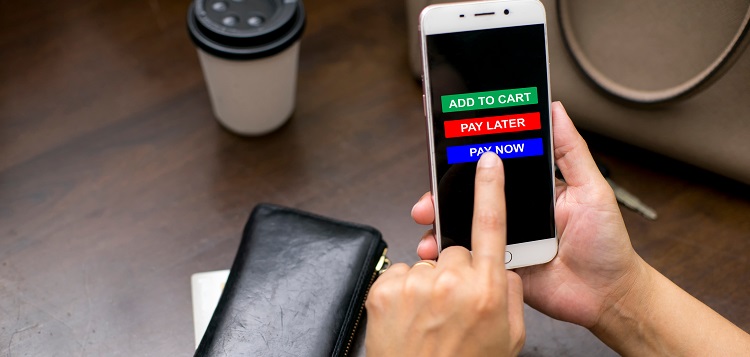The world had to adjust to new realities as the coronavirus pandemic brought life to a standstill. Retail businesses faced new challenges with closures, income losses, and consumers relying more on online shopping platforms. A new trend emerged in 2022 named “buy now, pay later” (BNPL) to cater to these shifts in consumer behavior. The BNPL trend originates from e-commerce platforms like Afterpay and Klarna, and its popularity is increasing among customers.
A growing trend: BNPL options
An increasing number of consumers in 2022 chose the buy now, pay later (BNPL) option. This trend caught on as consumers sought ways to deal with income losses brought on by the pandemic. BNPL offers retailers a solution to the challenges posed by a global public health crisis. Retailers benefit from increased sales with no immediate loss. In 2022, the share of online purchases using BNPL grew by 14% YoY. The trend continued in the first two months of 2023, with the BNPL order share up by 10% YoY.
BNPL Impact on Specific Categories
Groceries’ share of BNPL (Buy Now Pay Later) orders grew 40% in the first two months of 2021. The growth is significant when considering that groceries have traditionally been outside the scope of e-commerce, presenting a challenge for online retailers as grocery shopping is not an individualistic experience. This new trend presents a possible paradigm shift for supermarkets and delivery platforms. Home furnishings grew by 38% in the first two months of 2021. This growth is a result of the shift towards remote work that led people to turn their homes into ‘sanctuaries’.
Consumer spending behavior
In 2022, consumers spent over $126 billion on home furnishings, a 10.2% increase YoY. This spending aligns with the need for people to have a space where they can separate work and personal life, especially for remote workers. Consumers spent $86.8 billion on groceries, a 10.8% increase YoY in the same year. The pandemic influenced shopping habits, whereby many consumers reduced store visits and opted for home delivery services.
In February 2023, the home furnishings category grew by 12.9% YoY, driving $9.4 billion in spending. The shift towards remote work led to a rise in demand for home furnishings, with consumers dedicating more time, money, and effort into creating a pleasant environment. Groceries grew even more substantially at 26.7% YoY, driving $8.4 billion in spending in Feb 2023. Consumers have been utilizing BNPL (buy now, pay later) options more frequently as they seek to stretch their incomes further.
Reasons for changes in spending behavior
Consumer behavior has been influenced by the lasting pandemic habits, where people have had to adapt to the changing world. Online shopping services have become a necessity as people reduced store visits to avoid contracting the virus. The urge to create a pleasant environment at home is an offshoot of the pandemic, with remote workers demanding more comfortable home offices. The shift towards BNPL is also a result of retailers’ responsiveness to the changing situation and the need to remain competitive.
The coronavirus pandemic has led to significant changes in consumer behavior. BNPL (Buy Now Pay Later) options have grown in popularity among consumers, and many retailers have responded by incorporating the option into their business models. Home furnishings and groceries have become new growth drivers in the digital economy. With consumers seeking to create comfortable workspaces at home, the demand for home furnishings is likely to grow consistently. The shift towards remote work is also driving the growth of BNPL among consumers. Retailers must continue to respond to the changes in the retail industry to remain competitive, retain their customers’ loyalty, and continue making profits.

